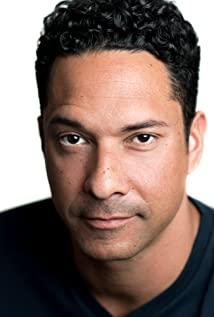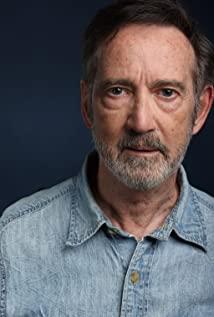Before watching this movie, I watched it with a tragic mentality. I deliberately put this movie at the end of my recent viewing list. I deliberately chose a sunny weekend, and I deliberately started this movie in a happy state with a meal. Maybe because my heart is too soft, I can't bear to watch the tragedy.
However, the process of watching the movie is the process of my constant black question mark? Where is Richard's lament? He has a mother who loves him, a lawyer friend who really cares about him, a childhood friend who never abandons him, and an optimistic character who doesn't worry or worry. He is simply an American "fat cat" and a winner in life. Looking at what happened to him again, he stepped forward as a hero. Although he was framed in the middle, he was finally wronged, and even the reporter who framed him shed tears of repentance. Moreover, in the process of being framed, the family and friends around him always trusted, supported and supported him, and even the person who framed him has always followed the rules. At the end of the story, he also realized his dream and became a policeman again.
so? "Lamentation"? Where is the mourning? Isn't this a family-friendly comedy, the protagonist realizes his dream, and even the supporting roles are beautiful, everyone is happy, and the whole world celebrates.
No, I frowned, realizing it wasn't that simple. Think about it carefully, this friend who translates the movie name has something.
Think about it, for the protagonist, it's a comedy, and for the rest of the film, it's a tragedy, which is interpreted not only by their experiences, but also by their humanity.
The FBI's Inspector Sean, thinking that this case was a sweet pastry, grabbed the case at the first time, and wanted to rely on this case to make progress. When there was no clue about the case, an informant suddenly came from the sky, and Richard's former boss called to report; I felt that the case was about to be successfully concluded, and another hot and beautiful reporter came to embrace him. It is a double harvest of career and love, and Tieshu is in the second spring again. But the great sorrow after the great joy is always the most torturous. Inspector Sean, who is proud of the spring breeze, worked hard for a long time, and spent all his time on a wrong suspect. In the end, he could only be disheartened and leave the scene. All his dreams at the beginning: to solve a case and become a detective, none of them came true, and the movie did not explain his ending, but the ending must also be ruined in his career, and he will regret his life for the rest of his life.
A female reporter in a newspaper office, she prides herself on being slick in all aspects, and she is all black and white. She has a tenacity in her body, and when the male lawyer drives her out of the car over and over again, she can be cheeky and stick around. This tenacity, this tenacity to "succeed" in order to stand out, let her get inside information, let her get the applause of everyone in the office, and make her seem to think that she is reaching the pinnacle of her life. But life is like this. After the peak, there must be a trough. The follow-up development keeps hitting the face, the case has no progress, and then the lawyer comes to the door to humiliate in public. From a star in applause to a clown being watched. In the end, her tears of repentance could not redeem her fate of being lonely in the workplace.
Yes, this is a tragic movie, this is a lament, but this tragedy does not belong to the male protagonist, this lament is not played for the male protagonist.
What is the source of the tragedy of Inspector Sean and the female reporter? I said above because of their humanity and their three views.
Kant said that man should be the end, not just the means. Perhaps this is the source of the tragic fate of detectives and reporters, who regard people as means, not ends. In their eyes, the male protagonist is their weight in solving cases and promotions, and a tool for them to generate news and grab traffic, but whether the male protagonist is innocent, what is the male protagonist thinking, the pain and anger of the male protagonist, they don't care. In their eyes, Richard Jewell is just a name, a codename, an item, but not a person. Their attitude towards people directly led to their tragic ending. Interestingly, people who use people as means tend to have tenacity and perseverance. Such perseverance and perseverance may achieve success in other situations, but for those who use people as means, a tragic fate It is predestined, tenacity and persistence will only accelerate the development of the tragedy.
Director Dongmu, as the oldest director in the world, he has experienced everything in his life and seen everything in his life. His films often have a heavy sense of life experience and philosophy of life.
This lament seems to belong to the detectives and reporters. Behind the detectives and reporters, those who also use the male protagonist as a talking point, call them a hero, and step on their feet; those who also use a person as a means without really paying attention For people, politicians who respect people, celebrities, and everyone who eats melons, this lament also sounds for them.
View more about Richard Jewell reviews











